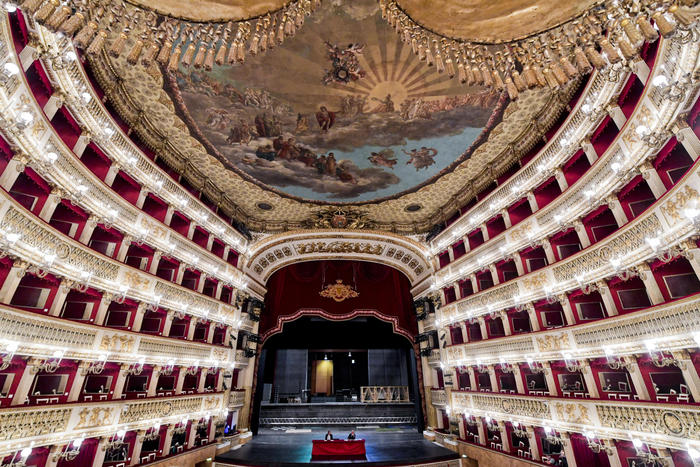The culture sector in Italy has suffered serious damage from the Covid pandemic and recovery is expected to be difficult for everyone, from publishing to exhibitions, from cinema to music. But for the theater in particular, the situation is dramatic, even more than in museums, with 3 out of 4 companies that have resorted to social safety nets and have had to terminate contracts with suppliers and companies. To underline it is an SDA Bocconi study that supports the need to "Review the business model" In particular, it is emphasized in the study coordinated by Professor Andrea Rurale, 76.5% of theaters have made use of social safety nets, despite the considerable 48.7% of the museums. And also the prospects for recovery, it is pointed out, "are very different".
The research, carried out within the SDA Bocconi Arts and Culture Knowledge Center, examines a sample consisting of museums (civic museums, regional museum centers, galleries, foundations of autonomous national museums) and theaters (symphonic opera foundations, traditional theaters, independent theater associations) for the period April 20-May 12.
According to Rurale, the study shows that museums will have more ease of sharing: "social distancing is unthinkable in a theater room both among the public, where half of the audience would be empty, and on the stage where only monologues could be staged. museums, on the other hand, the works are already present and exhibited and can be organized to limit access and set up compulsory itineraries in the halls, while theaters must interact with managers and artists as well as with the public ". In support of this consideration, Bocconi researchers report a data defined as "eloquent": 73.5% of theaters have resolved, or plan to resolve, contracts for reasons of force majeure against 17.9% of museums.
"If both have suffered from the lost revenue from ticket sales and sponsorships," Rurale explains, "museums have the advantage of having in many cases the employees paid by the state, while in theaters the staff is almost always at charged to the institutions themselves ".
Without of course forgetting the large number of people, the so-called intermittent workers, such as masks and tourist guides, "who have been excluded from all the social safety nets provided for in the first decrees".
Although both categories examined have ensured a constant presence on social networks, using above all archival material to create storyrtelling (77% of the sample institutions did it) and content for the young audience (65%), these activities make note Rurale again, "they are completely free and do nothing but further underline the precariousness of a business model that depends too much on ticket revenues and sponsorships, which in this phase have been almost entirely transferred to the healthcare front." "The system is based on a precarious balance that involves the biggest funder of theatrical activities, which is the public administration together with private sponsorships often with a short-term horizon and ticket revenues". From the analysis, Rurale concludes, "the need for a medium-long term strategic approach, the need to plan longer not only the calendar of each season but also the evolution of other activities" (ANSA).
Sos theaters, in Italy 3 out of 4 in deep crisis
2020-06-06T09:14:06.127Z

The culture sector in Italy has suffered serious damage from the Covid pandemic and recovery is expected to be difficult for everyone, from publishing to exhibitions, from cinema to music. (HANDLE)
